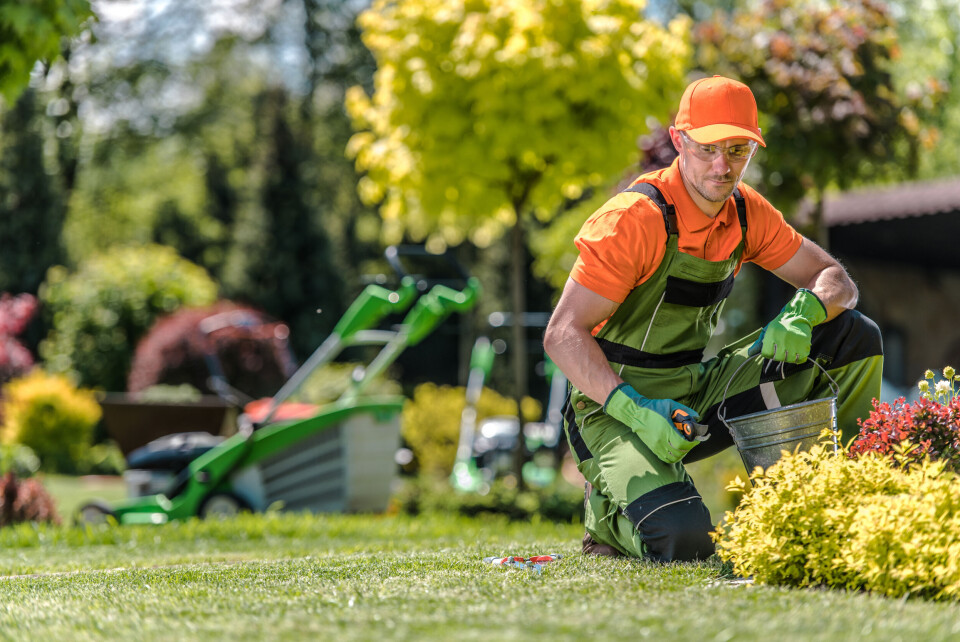-
All wrapped up for Christmas: how to protect your plants in France this winter
Discover effective methods to shield your garden plants from winter frost and cold, ensuring their survival and health through the chilly months
-
Preparing your French garden for the festive season and the year ahead
Christmas veg harvest, sustainable Christmas tree options and great deals on outdoor furniture for next summer
-
Open Gardens: celebrating success in 2025 and welcoming new volunteers for 2026
Discover the gardens charity's triumphs this past year and learn how you can offer support by joining the community
Holiday home gardens in France fall victim to Brexit 90-day rule
We look at solutions and prices to keep on top of your French second home garden including self-employed gardeners, solar-powered lawnmowers and how La Poste could help

Gardens of holiday homes might be one of the casualties of Brexit-related 90-day visitor restrictions.
Second-home owners who used to spend longer than that in France now face leaving their gardens untended for up to three-quarters of the year, unless they can make alternative arrangements.
An obvious answer is to hire a professional to take care of it on your behalf.
Professional gardeners are always busy
Fairly recent changes in French company law to allow self-employed workers (micro-entrepreneurs) to pay social security taxes after their money has come in – instead of fixed sums whether they had been paid or not – have seen many people register as gardeners.
Rates are around €15 to €20 an hour.
Being in the system means that getting paid off the books is not as attractive as it once was so expect people to now issue proper invoices.
Good gardeners do not have to advertise as word of mouth usually means they have plenty of work.
Gardening businesses tend to stay small
In France, though, the advantages of being a salaried worker are many, and self-employed gardeners are likely to be competing against small businesses with fewer than 10 workers.
Payroll taxes increase for firms with more than this number of staff, which is why many companies stay small.
Teams arrive in a van with their lawnmowers and strimmers and set to work, doing the job quickly before piling back into the vehicle to head to the next job.
Finding such companies used to be done through the phone book, but now a quick internet search will throw up any number of garden firms, some of which operate as co-operatives.
Emeric Leboucher, who runs Jardinage Services in Normandy, told The Connexion: “To be honest, after the crash of the pound sterling a dozen years ago, we have not had many British customers. This might change [with visiting restrictions] as I know the British clients we had before that were passionate about their gardens.”
Robots can help
One difference these days, however, is the growing popularity of solar powered lawn-cutting robots, costing from around €1,000.
Read more: Gardening in France: Let's talk lawn management
“When they are set up well, they will cut the lawn all season, on their own, returning to the base station to recharge, and seldom needing intervention from us,” he said.
“It is one of the options we are seeing more and more people take.”
La Poste moves into gardening
As often happens in France, garden services are concentrated in towns, so finding one near you might take longer than one click.
The sector has also attracted some larger companies trying to muscle in on the promised goldmine of an ageing population needing more help to stay in their homes.
La Poste, which is keenly seeking new revenue, set up a franchise company called Axeo Services, which includes help with gardening.
Read more: France’s postal service struggling?
It has national ambitions, although the first franchisees were in large towns and the roll-out to rural areas has been slow.
No cheap solution
Prices are relatively high, whether the professional is a man-with-a-van operation, a company sending in a team, or part of a national franchise.
For long-term garden upkeep, getting a quote for an annual service makes sense.
An example given by Jardinage Services is for €290 a month, including all taxes, for a garden of 750m².
Included are 15 two-hour sessions of mowing and strimming, two five-hour sessions of pruning shrubs, one fruit tree pruning session (in winter) of eight hours, one hedge pruning session of 18 hours in the autumn, and one four-hour spring session to clean patios and decks with mechanical brushes and power washers.
Also included is the price of taking away clippings and other vegetable waste and disposing of it in a tip.
Tax deductions
For those who are French-domiciled taxpayers – so not people affected by the 90-day visit limit – there is a 50% tax deduction (or credit if you do not pay income tax) for petits travaux de jardinage, a definition which includes the work described above.
Recent changes mean that the credit is paid in two instalments, six months apart, instead of one lump sum, a year after the bill was paid.
For garden work, the tax credit is limited to €5,000 a year.
The quote above does not include weeding flower or vegetable beds, and it can be difficult to find gardeners willing to do so.
If the garden has flowerbeds, it might be necessary to sacrifice them and plant shrubs.
Tax credits can only be applied for with receipts from registered professionals – another reason why paying cash to the lawn chap without a receipt is increasingly rare.
Related articles
France’s second home visit ban boosts property maintenance services
Spring is the season for gathering nuts and other delicacies in France
Open gardens in France - show off your garden or visit one near you
























